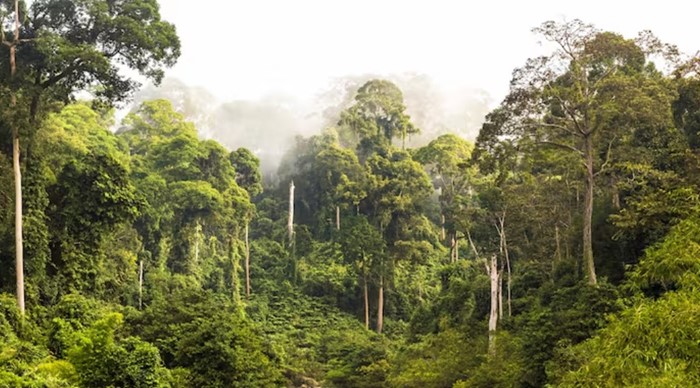
Ozone Pollution Slows Growth of Tropical Forests, Undermining Carbon Capture Efforts
A recent study published in Nature Geoscience reveals that ground-level ozone is significantly hindering the growth of tropical forests, leading to an estimated 290 million tonnes of carbon dioxide remaining uncaptured each year. This poses a major challenge to global climate change mitigation efforts.
While the ozone layer in the stratosphere shields the Earth from harmful ultraviolet radiation, ozone at ground level—created by pollutants interacting with sunlight—negatively impacts plant growth and poses health risks to humans. The study found that this ground-level ozone reduces annual growth in tropical forests by an average of 5.1%, with some areas, such as Asian tropical forests, seeing reductions as high as 10.9%.
Dr. Alexander Cheesman, co-lead author from James Cook University and the University of Exeter, emphasized the essential role tropical forests play in absorbing carbon dioxide emissions. According to the study, ozone pollution has prevented the capture of 290 million tonnes of carbon each year since 2000, reducing the forests' carbon removal capacity by 17% over the past two decades.
The researchers conducted experiments on various tropical tree species to assess their vulnerability to ozone. The findings were integrated into a global vegetation model, showing that regions designated for current and future forest restoration are particularly affected by high ozone levels.
Dr. Flossie Brown, co-lead author and University of Exeter graduate, warned that ozone concentrations across the tropics are expected to rise due to increasing emissions of precursor pollutants and changing atmospheric chemistry driven by global warming.
Professor Stephen Sitch from the University of Exeter highlighted that stronger environmental protections could help lower ground-level ozone levels, improve air quality, and enhance the carbon-absorbing capacity of tropical forests.
This research underscores the complex relationship between air pollution and climate change, stressing the need for comprehensive strategies to address both issues in order to preserve the vital role of tropical forests in carbon sequestration.